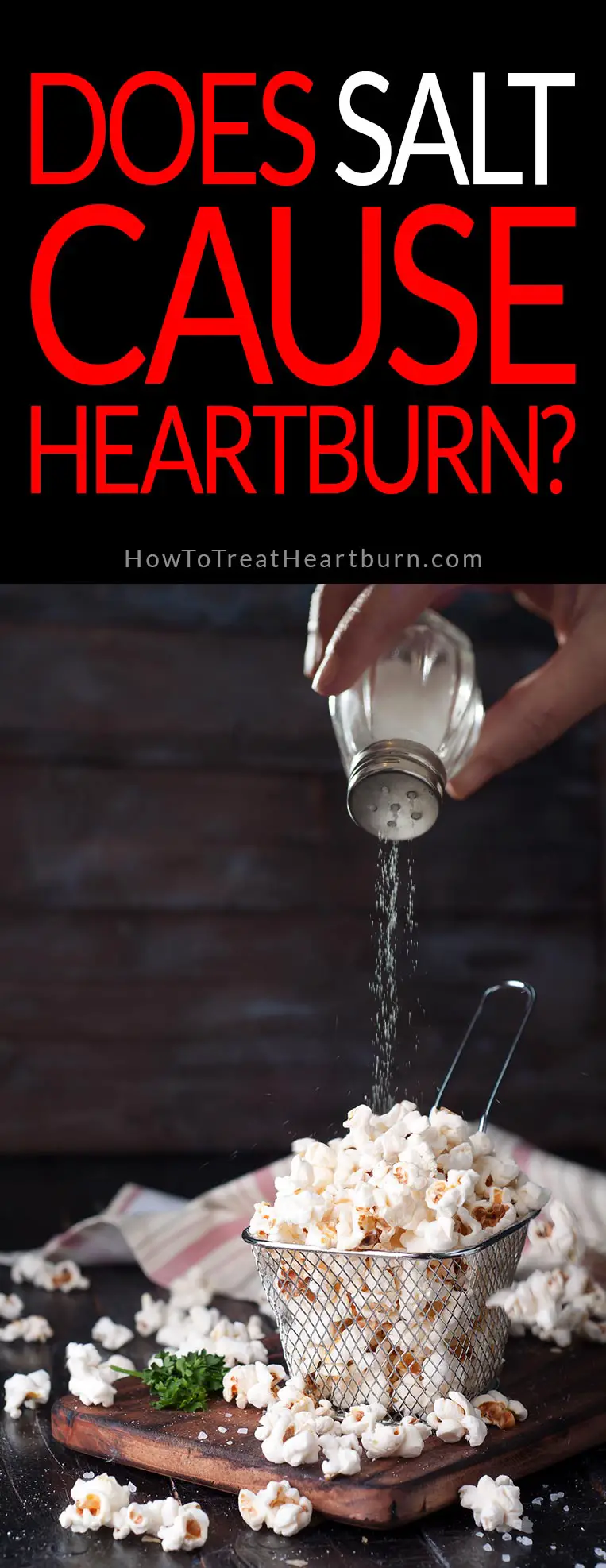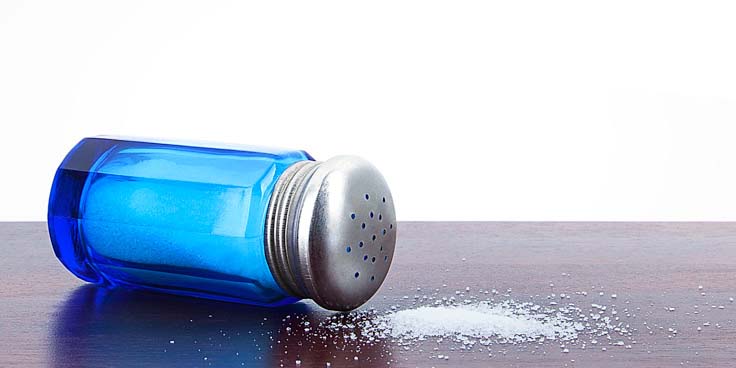Disclosure: I am compensated for purchases made through some links on this site. Click for details.
The relationship between dietary habits and heartburn symptoms is evident. The foods we eat can lead to heartburn, acid reflux, or gastroesophageal reflux disease (GERD).
Some people suffer from heartburn after eating salty foods causing them to question whether it plays a factor in the development of heartburn symptoms. Let’s take a look at two studies that covered the subject of salt and heartburn to see what correlations exist.
A quick review of GERD and how it relates to heartburn… GERD is the condition of having chronic acid reflux and heartburn is the pain caused by refluxed acid irritating the esophagus.
Salt and GERD Case Studies
A 2004 Norwegian study showed a correlation between the intake of salt and GERD. The study showed that participants who add additional salt to meals were 70% more likely to suffer heartburn than those who did not add additional salt to their meals.1
A 2006 Dutch study showed no significant correlation between the intake of salt and GERD in healthy people, however, there was a decrease in lower esophageal sphincter (LES) pressure.2 This could lead us to assume that those already suffering from chronic acid reflux might have increased risk with a high sodium diet. The strength of the LES closure is important in keeping stomach contents in their place, preventing the occurrence of acid reflux. If there is no acid reflux, we eliminate GERD and most all heartburn symptoms.
These two studies do not reach the same conclusion, leaving us to continue questioning the possible correlation between salt and heartburn. Though the question remains unanswered when weighing both studies, you might consider cutting back on your salt intake to see if your heartburn, acid reflux, or GERD symptoms might improve. Due to the fact that foods affect people differently, finding an individual’s heartburn triggers can be a matter of trial and error. Also, consider that many salty foods are greasy, fatty, or processed. It’s always good to eliminate these heartburn trigger foods from your diet.

References
1) Nilsson M, Johnsen R, Ye W, Hveem K, & Lagergren J. “Lifestyle related risk factors in the aetiology of gastro-oesophageal reflux.” National Center for Biotechnology Information, U.S. National Library of Medicine, Gut – BMJ Journals, December, 2004.
2) Marissa C. Aanen, MD, Albert J. Bredenoord, & André J. P. M. Smout. “Effect of dietary sodium chloride on gastro-oesophageal reflux: A randomized controlled trial.” Taylor & Francis Online, Scandinavian Journal of Gastroenterology, July 8, 2009.




Would Thyroid medicine cause heartburn?
Hello Nina! Thyroid and hyperthyroidism affect hormones which in turn can, in turn, weaken the lower esophageal sphincter to allow acid reflux. Hormone changes from taking thyroid medications could possibly cause heartburn. Be aware… Antacids taken for heartburn can inhibit the absorption of medications such as thyroid medication. Speak with your doctor and/or pharmacist if you take antacids and thyroid medication.
I get heartburn a lot but I have just realize that salt from process food is highly increasing my heartburn also adding to it making it way worse